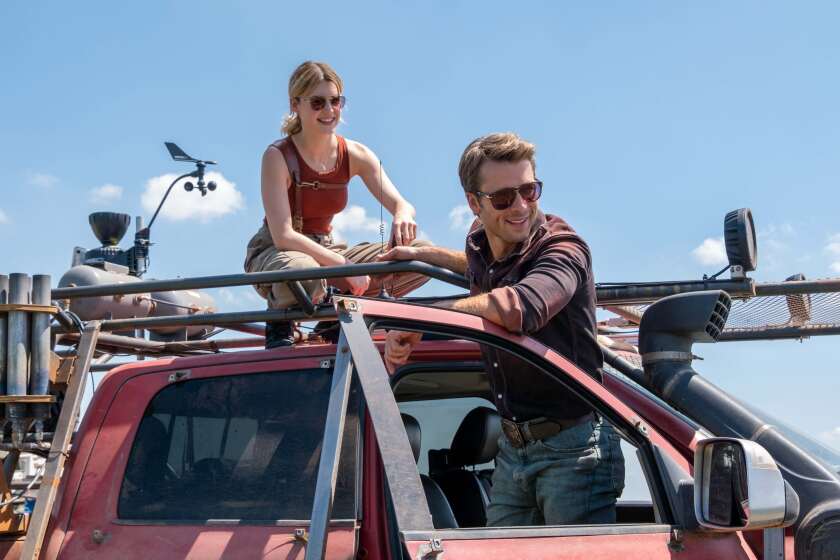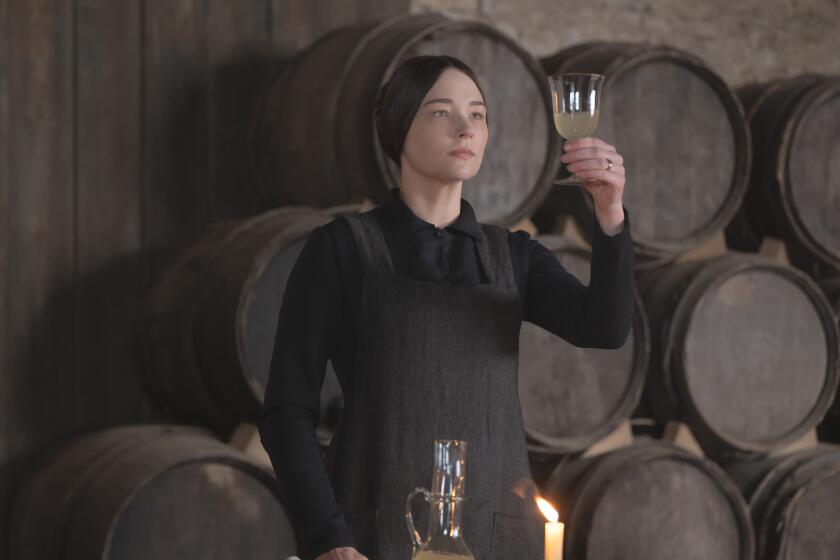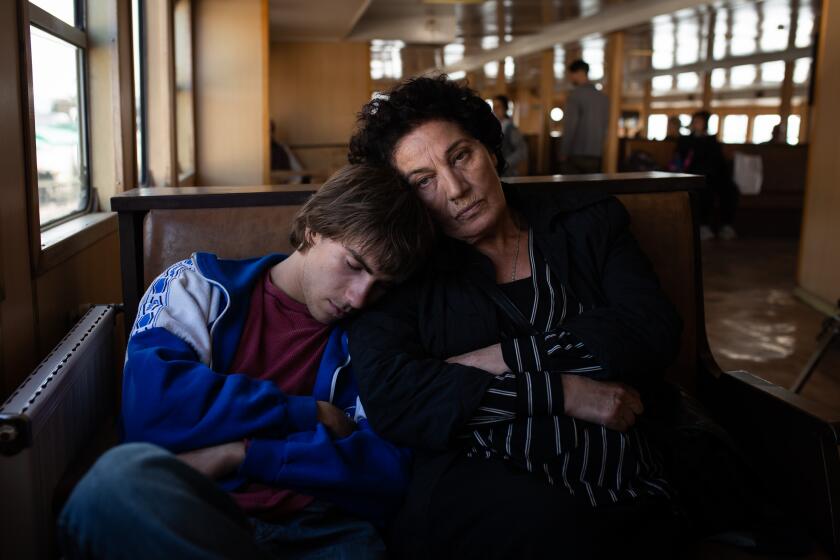MOVIE REVIEW : ‘Menace’: Message Is in the Madness : The Hughes twins progress from directing hip-hop videos to a free-form ‘hood drama steeped in violent generational attitudes.
Allen Hughes and Albert Hughes, the 21-year-old twin brothers who directed the youth-in-trouble movie “Menace II Society,” along with 23-year-old screenwriter Tyger Williams, are young enough to get inside the lives of Watts gangbangers without making it seem as if we’re watching something taking place on another planet.
They aren’t always able to sort out what they put on the screen. (Not the worst of faults with filmmakers; at least they have something vital to put out.) Because there’s so much mayhem in “Menace II Society” (citywide) the filmmakers may have worried that audiences would get high on it. So, as a counterbalance, they turn preachy and diagrammatic, just to make sure we don’t confuse the depiction of violence with its endorsement.
The filmmakers needn’t have worried, but their fears are understandable. The Hughes brothers have such a free-form, caught-in-the-act directorial style that it’s easy to mistake their “objective” unblinking approach with an uncaring attitude. (Their previous experience is mostly making hip-hop videos.) But their instincts as filmmakers override their instincts as moralizers. “Menace II Society” (rated R for strong violence, drug use and language) is best--and most shocking--when it just sets out its horrors and lets us find our own way.
The film opens with a blast of brutality. A Korean merchant and his wife are casually blown away by O-Dog (Larenz Tate) over a petty dispute while O-Dog’s homeboy, Caine (Tyrin Turner), looks on aghast. O-Dog grabs the store’s surveillance videotape of the crime and later reruns it proudly for his fellow homeboys, A-Wax (rapper MC Eiht), Stacy (Ryan Williams) and Chauncy (Clifton Powell). O-Dog likes being the star of his own shoot ‘em up; he especially likes to replay the moment when the merchant’s brains go flying.
But it is Caine--who, unlike O-Dog, still seems to have some scruples--who occupies the film’s harsh center. His childhood is filled in for us in flashback: His father (Samuel L. Jackson), a dope-dealer in the ‘70s, was murdered when Caine was 10; his mother, a junkie, OD’d.
Raised from childhood by his Bible-toting grandparents in Watts, Caine is on the verge of graduating high school but the only life that holds any meaning for him is in the streets. He’s proud of his gang affiliations but he’s also proud that he draws the line--he hasn’t killed anybody yet. But when he witnesses the murder of his cousin by a rival gang, he and his homies go into action. Their vengeance sets off a sickening wave of retribution.
When Caine’s grandfather (Arnold Johnson) asks Caine if he cares whether he lives or dies, Caine’s response is “I don’t know.”
The movie is a demonstration of how Caine comes around to caring about living--when it’s already too late. There’s a slightly generic quality about the way Caine is characterized that’s probably intentional on the part of the filmmakers; he seems less an individual than a symbolic representative of all kids in trouble. His passage covers a lot of territory: from his broken-family upbringing to his acting as surrogate father to the child of another broken family. The cyclical nature of Caine’s story is part of a larger story; the movie is saying that miseries move down the generations, just as the Watts riots of ’65 (which we see in newsreel footage) are replayed in ’92.
The young actors in “Menace II Society” don’t have the kind of power or presence that might make their stories really hit home. When someone like Charles Dutton or Bill Duke turns up in a cameo, they blast the film’s semi-documentary veneer with their high-style theatrics. We need some of their preening and staginess because, without it, the film might seem too stark.
A bigger problem is the way the filmmakers sentimentalize Caine’s struggle by working in a girlfriend, Ronnie (Jada Pinkett), who pleads with him to go with her and her young son to Atlanta to start over; she’s so angelic that she’s unbelievable. We can’t see how she got that way right in the middle of such an inferno. Sharif (Vonte Sweet), a friend of Caine who spouts teachings from the Nation of Islam, and his father (Dutton) are likewise presented as guardian angels; they try to coax Caine into moving with them to Kansas. Their salvation is presented without irony: Kansas as the Promised Land.
The filmmakers’ attitudes are probably summed up by Sharif’s father when he cautions Caine that “the hunt is on and you’re the prey. All I’m saying is survive.” The film endorses survival by religion-- any( religion; survival by staying close to your loved ones, by staying away from gangs, from drugs. The Hughes brothers are torn between the hopelessness of what they depict and a kind of haloed view of a better life. (Do we really need to see Caine’s grandparents watch the happily-ever-after ending of “It’s a Wonderful Life” on television?) They’re split between fatalism and arrant optimism, and, in that split, their film probably expresses the attitudes of their generation more fully than they know.
‘Menace II Society’
Tyrin Turner: Caine Lawson
Jada Pinkett: Ronnie
Vonte Sweet: Sharif
Larenz Tate: O-Dog
MPAA-rated R (strong violence, drug use, language).
More to Read
Only good movies
Get the Indie Focus newsletter, Mark Olsen's weekly guide to the world of cinema.
You may occasionally receive promotional content from the Los Angeles Times.






